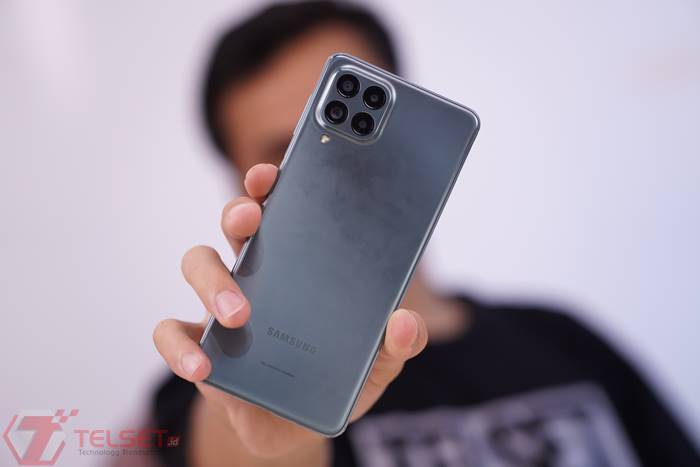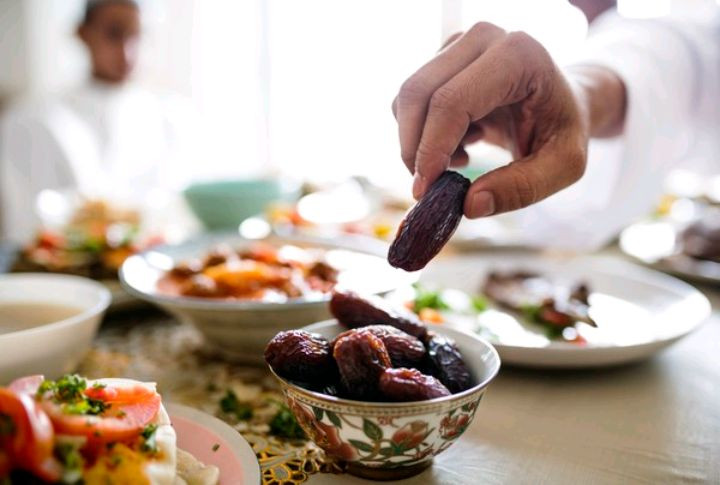“Apa kabar?” – Greetings in Indonesian Culture
“Apa kabar?” is a common way to say “How are you?” in Indonesia. It is often used as a greeting among friends and acquaintances, as well as in more formal settings. This simple phrase is an important part of Indonesian culture and reflects the importance of asking about people’s well-being. Indonesians value personal relationships and expressing concern for others is an important part of building and maintaining those relationships.
The phrase “Apa kabar?” is usually followed by the response, “Baik, terima kasih” (“Fine, thank you”). However, it is common for Indonesians to elaborate on their answer, sharing details about their life and current activities. Asking follow-up questions about each other’s families, work, and hobbies is also a common practice.
It’s important to note that Indonesians often use indirect communication styles and may be hesitant to share personal information with people they don’t know well. If you’re meeting someone for the first time or in a formal setting, it’s best to stick to a brief exchange of greetings and basic pleasantries.
Greetings are an important part of Indonesian culture and vary depending on the region and the social context. In Bali, for example, people typically greet each other with a handshake and a smile, while in Papua, a traditional nose-to-nose greeting is more common. In many areas of Indonesia, it is customary to follow a greeting with a bow, such as placing your hands together in front of your chest as a sign of respect.
As with any cultural practice, it’s important to be respectful and aware of local customs when greeting people in Indonesia. Indonesians are generally warm, friendly, and eager to help visitors feel welcome, and taking the time to learn a few basic phrases like “Apa kabar?” can go a long way in building relationships and connecting with people.
The Importance of Greetings in Indonesian Society
As a multicultural country, Indonesia has a diverse and unique way of greeting each other. Greetings play an essential role in Indonesian society, as they show respect and politeness towards others. One of the most common greetings you will hear in Indonesia is “apa kabar?” meaning “how are you?”
In Indonesia, greetings are not just a way to acknowledge someone’s presence. It is also a way to initiate communication and maintain relationships. Whether you are meeting someone for the first time or seeing an old friend, it is crucial to start with a proper greeting. It is a way to show your interest and care for others. Indonesian people love to greet each other, and it becomes part of their daily lives.
It is also essential to understand that different people in Indonesia have their own unique way of greeting. Traditional Indonesians, for instance, prefer the formal greeting of “Selamat Siang” or “Good Afternoon.” This type of greeting shows how polite and respectful they are towards others.
For younger generations, such as students and young professionals, the greeting is more relaxed. You will commonly hear “Apa Kabar?” or “How are you?” as a casual greeting.
Additionally, there are some regions in Indonesia that have their own traditional greetings. In Bali, for example, people greet each other with “Om Swastiastu,” while in West Java, people say “Halo.” These traditional greetings show how unique and diverse Indonesia is.
Indonesian society puts a high value on being gracious and friendly, and the proper greeting is an integral part of this culture. Failing to greet someone is viewed as rude and can create an awkward situation. Indonesians take greetings seriously, and it is seen as a sign of respect towards others. Proper greetings lead to more engaging conversations and help develop better relationships.
In conclusion, greetings in Indonesia are an important aspect of the culture and society. Not only are they a sign of respect towards others, but they also help initiate communication and build excellent relationships. So, if you are planning to visit Indonesia, don’t forget to say “Apa Kabar?” to anyone you meet!
Baik-baik saja – Common Responses to “Apa kabar?”
When it comes to greetings or small talk, one of the most common phrases used in Indonesia is “Apa kabar?” which directly translates to “How are you?”. It is a simple and polite way to initiate a conversation or check on someone’s well-being. As a response to this question, people in Indonesia usually reply with “Baik-baik saja” which means “I’m fine” or “I’m doing well”.
While this response may seem brief and generic, it is a polite and common way to keep the conversation going. Indonesians generally prefer to keep things light and positive, especially during small talk. By saying “Baik-baik saja”, one can simply acknowledge the question and show that they are doing fine, without necessarily getting into the specifics of how their day has been or whether there are any problems.
However, it is important to note that “Baik-baik saja” can also be used to hide one’s actual emotions or problems. It is not uncommon for Indonesians to respond with this phrase, even when they are not actually doing well. The underlying culture of “saving face” and avoiding conflict sometimes leads people to give a positive response, even if they are struggling or in a difficult situation.
Therefore, it is also common for friends or family members who are closer and more familiar with each other to use different responses to “Apa kabar?”. For example, they may say “Lagi sibuk nih” (I’m busy right now) or “Capek tapi semangat” (Tired but still motivated). These responses are more specific and show a bit more personality and honesty. They allow for a deeper and more meaningful conversation, rather than just superficial pleasantries.
Overall, “Baik-baik saja” is a popular and appropriate response to “Apa kabar?” in Indonesia. It reflects the politeness and positive nature of the culture, but it should also be taken with a grain of salt. If you want to show a closer relationship with someone, it may be worth using more specific responses to break through the small talk and find out more about how they are really doing.
Alternative Greetings in Indonesian Language
While “apa kabar” (how are you) is the most common greeting in Indonesian language, there are other ways to greet someone. Here are some alternative greetings that you can use:
1. Selamat pagi (good morning)
Selamat pagi is used in the morning until around 9 or 10 am. It is a polite way to greet someone and show your respect. You can use it when you meet someone for the first time, especially in a formal setting like a job interview or a business meeting.
2. Selamat siang (good afternoon)
Selamat siang is used in the afternoon, usually from around 11 am until 3 pm. It can be used in both casual and formal situations. You can also use this greeting to say goodbye to someone in the afternoon.
3. Selamat sore (good evening)
Selamat sore is used in the late afternoon/early evening, usually from around 4 pm until 6 pm. It is a polite way to greet someone and show your respect. You can use it when you meet someone for the first time, especially in a formal setting like a job interview or a business meeting.
4. Apa kabar? (how are you?)
Apa kabar is the most common greeting in Indonesian language. It means “how are you?” and is often used in casual situations with friends and family. When asking this question, people usually expect a brief response such as “baik-baik saja” (I’m fine). However, if you want to share more details about how you are feeling, don’t be afraid to do so. Indonesians are usually very friendly and happy to have a conversation with you.
Indonesians also have a lot of non-verbal ways to greet someone. For example, they might nod their head or smile while saying hello. They might also clasp their hands together in front of their chest as a sign of respect. If you are not sure how to greet someone, just follow their lead and you’ll be fine!
Understanding Non-Verbal Gestures in Indonesian Greetings
Indonesia is known for its warm and friendly people who are always ready to greet visitors with a smile and a warm handshake. However, greetings in Indonesia are not always verbal, and there are many non-verbal gestures that are used to show respect or honor someone. Understanding these non-verbal gestures is essential for any foreigner visiting Indonesia as it helps to build a strong connection with locals.
1. The Wai Gesture
The Wai gesture is a hand gesture typically used in Thai culture but also commonly used in Indonesia and other Southeast Asian countries. The gesture involves placing both hands together in front of the chest with the fingers pointed upward and the palms touching. This gesture is used to show respect, gratitude, and to greet people. It is commonly used when greeting someone who is older or in a higher position than oneself, such as a teacher or a boss.
2. Bowing
Bowing is another gesture used to show respect in Indonesian culture, especially when meeting someone for the first time. The bow consists of placing one’s hands together in front of the chest, with a slight forward tilt. A deeper bow is required when meeting someone of higher status, such as a religious leader or a government official. It is also necessary to bow when entering a temple or mosque.
3. Handshake
Handshakes are commonplace in Indonesian culture and are used to show respect, friendship, and trust. Indonesians have a firm handshake, and it is essential to maintain eye contact during the handshake. It is common to shake hands with both men and women in Indonesia.
4. Touching the Chest with the Right Hand
When greeting someone in Indonesia, it is a common gesture to hold the right hand at the chest while slightly bowing. This gesture is used to show sincerity and respect towards the person being greeted. It is commonly used in business meetings or when meeting someone of higher status.
5. Nodding the Head
Nodding the head is another common gesture used in Indonesian culture which signifies respect and agreement. A person can nod their head as a greeting or when acknowledging someone’s presence. It is essential to note that there are different ways to nod the head, and each gesture has its meaning. A slight nod of the head indicates acknowledgment, while a more profound nod indicates agreement and respect.
In conclusion, non-verbal gestures play a vital role in Indonesian greetings, and it is essential to be aware of these gestures to show respect and build relationships with locals adequately. These non-verbal cues are an important aspect of Indonesian culture, and foreign visitors should pay attention to them to enjoy a more meaningful cultural experience.






